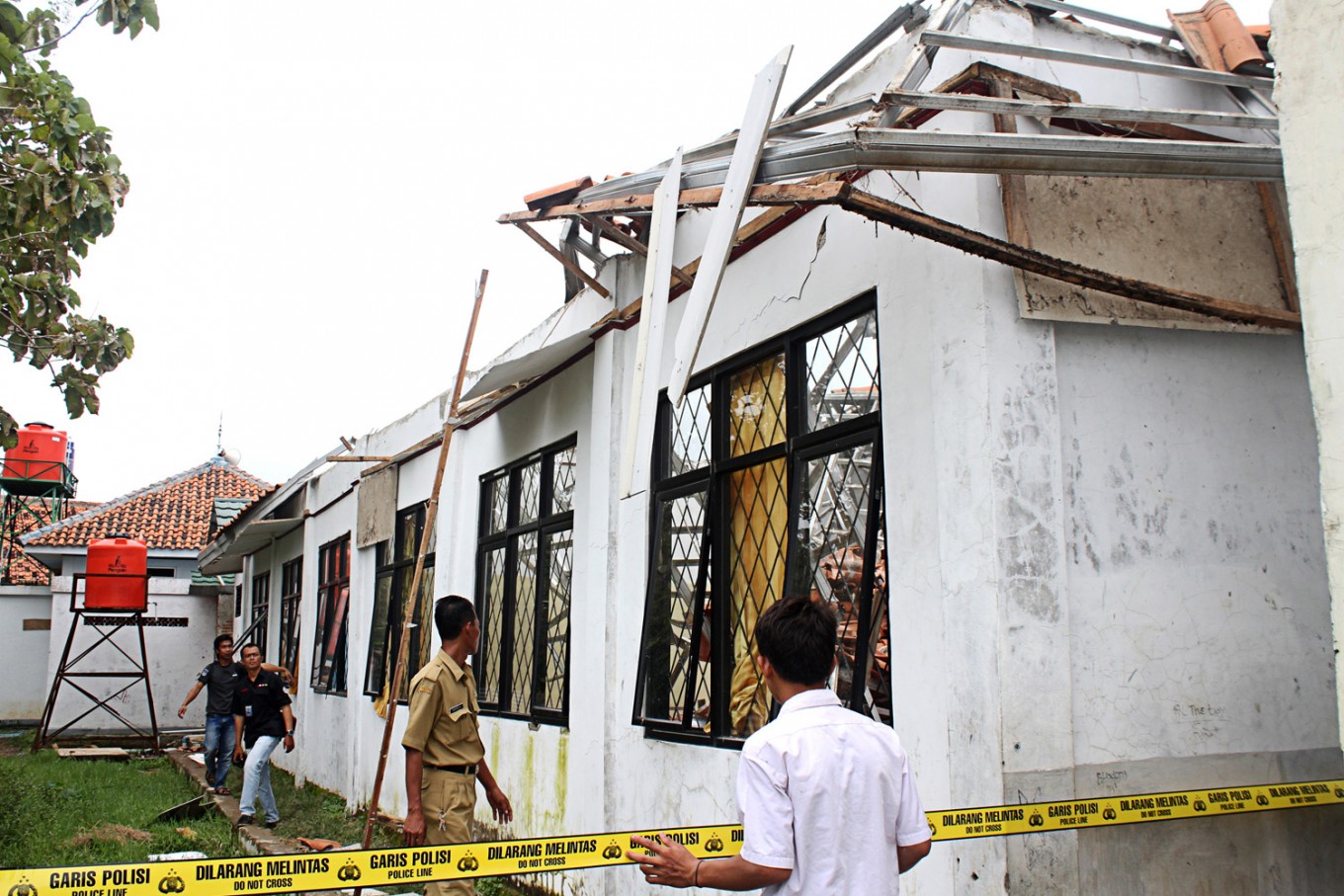Popular Reads
Top Results
Can't find what you're looking for?
View all search resultsPopular Reads
Top Results
Can't find what you're looking for?
View all search resultsIndonesian education index lower than Philippines, Ethiopia
Change text size
Gift Premium Articles
to Anyone
A
recent study commissioned by the Network for Education Watch Indonesia (JPPI) reveals the index of education services in Indonesia in 2016 ranks lower than the Philippines and Ethiopia.
The Right to Education Index (RTEI) research shows that from indicators measured in the survey, which comprise education governance, availability, accessibility, acceptability and adaptability, Indonesia scores 77 percent.
This indicates that the quality of education in Indonesia is at the same level with Honduras and Nigeria but lower than the Philippines (81 percent) and Ethiopia (79 percent).
The JPPI says three strategic issues need closer attention. These issues include teachers’ quality, child-unfriendly schools and discrimination against marginalized groups.
It further says Indonesia’s low score in terms of the quality of teachers is a result of the unbalanced ratio on the availability of teachers especially in outermost and secluded areas across the country. Results of a test held in 2016 show that the competency of teachers in Indonesia is still below standard.
Many schools in Indonesia are considered to still have a child-unfriendly environment due to the rise in reports on violence, both physical and non-physical, at school. Cases of bullying, physical violence and sexual violence against school children have emerged so often in mass media.
The JPPI says poor access to education experienced by people from marginalized groups needs an immediate solution. The groups include women, children in prison, disabled people, children from poor families and refugees.
Carried out in 14 countries in collaboration with RESULTS International, the RTEI research aims to measure the fulfillment of people’s rights to education. (dis/ebf)










